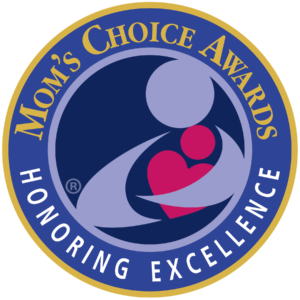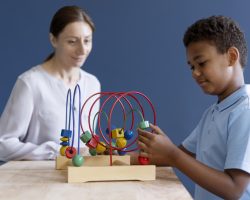Tag Archives: NVLD
Could You or a Love One Have NVLD?

Excerpt from the new book Misnamed, Misdiagnosed, Misunderstood; Recognizing and Coping with NVLD from Child hood through Adulthood
Throughout my childhood and early adult years, my parents, teachers, friends, and others would get mad at me for the things I did without knowing any better. Thankfully, before my diagnosis, I had figured out ways to not only cope but remediate some of my difficulties, which I’ll talk about later on in the book.
People were often puzzled by my responses and reactions, which seemed off base compared to what actually happened or to what was being communicated. This led them to think I was not listening. Much later, my parents understood and felt bad for not knowing I wasn’t intentionally misbehaving. The root cause was my inability to interpret and process nonverbal communication.
Just like you can’t read without learning the alphabet, you can’t understand what others are communicating without interpreting nonverbal cues. Reading nonverbal communication isn’t a subject taught in school. It’s assumed that most people learn nonverbal and social communication automatically and intuitively through visual observation and role-modeling of others, a process that begins in early childhood and continues throughout the school years.
One of the things I really struggled with was reading facial expressions that were neutral—also referred to as a “resting face”—and showed very little to no emotion. Unlike my peers, I wasn’t able to intuitively and effortlessly gauge a person’s mood, the setting, or the situation and adjust my behavioral responses accordingly. My mind was flooded with endless questions I couldn’t answer. Did I do something wrong? Are they mad at me? Why am I being ignored? Am I wanted here? Should I stay or leave? What happened? What did they mean when they said that? What should I have done instead?
When I couldn’t figure out what had happened or what was expected of me, I assumed I was responsible for the feelings of others and blamed myself. It was easier to withdraw socially than to be misunderstood. It’s like being told the color you see as red is blue. I lived with chronic anxiety, feeling as if the ground beneath my feet was unstable and shaky, as if I were walking on Jell-O.
Many times, when I asked my mother if she was mad at me, she would say, “No.” After some time passed and I still couldn’t figure out what was going on, I would ask again, “Are you sure you’re not mad at me?” This cycle would repeat itself. Each time, I would change the words, but, essentially, I was just asking the same thing over and over again in different ways. When she asked me, “Why do you think I’m mad?” I would give her a list of reasons: “You’re not talking to me; you sounded angry; you said this, or you didn’t say that…” I could be relentless and get on her last nerve until she was at her wit’s end! When she finally reached her breaking point, she would yell at me to stop asking her. Once I understood she was not upset about me or about a specific issue, I’d calm down.
To help yourself or your child, role-play a conversation where you prepare the person you will be talking to in advance by saying, “I process language differently so I may need to stop you when you are in the middle of speaking to be sure I comprehend what you’re saying or to clarify by asking you questions. You may feel as if I am not listening or am being rude. Be assured it’s none of these things. I just want to make sure we understand one another so I can respond appropriately.”
Reflective listening is another tool that can be used for neurodivergents (those think, learn, and do things differently) than neurotypicals (the majority of the population who communicate in the same way) to better understand each other.
Excerpt from my new book Misnamed, Misdiagnosed, Misunderstood; Recognizing and Coping with NVLD (nonverbal learning disorder) from Childhood through Adulthood. If you think you or a loved one may have NVLD or to learn more of my strategies for coping, read more …
#nvld #nonverballearningdisorder #nonverballearningdisability #learningdisabilities #aspergers #neurodivergent #autism #adhd #neurodiversity #anxiety #inclusion #adhdawareness #specialneeds #adhdsupport #adhdwomen #adhdmom
Linda Karanzalis, Board-Certified Cognitive Specialist is the author of Misnamed, Misdiagnosed, Misunderstood, a new book on Nonverbal Learning Disorder and other brain-based challenges.
Dr. Ned Hallowell, a psychiatrist, world-renowned expert on ADHD, and the New York Times best-selling author of Driven to Distraction says, “Linda’s book is vivid, compelling, full of heart and fresh understanding. Karanzalis replaces suffering with clarity and triumph for the millions of people with NVLD.”
Linda, who has NVLD and ADHD, has worked for more than 25 years with individuals of all ages with NVLD, ADHD, learning disabilities, and those on the autistic spectrum. As an author, podcaster, presenter, learning specialist, and ambassador for the NVLD Project, she provides validation, awareness, solutions, strategies, and, most importantly, compassion to the millions who live with neurodiversity. Find out more about her story and book at www.lindakaranzalis.com.
Follow Linda Karanzalis through her social media accounts:

Join the NVLD and NeuroDivergent Facebook Support Group
 Linda Karanzalis, MS
Linda Karanzalis, MS
Linda Karanzalis, MS, is a former special education classroom teacher with over 25 years of experience in the areas of learning disabilities, ADHD, social-emotional learning, social skills training, and behavior management
School Daze How I Graduated College With Honors

For students with brain-based learning challenges like ADHD and NVLD, excelling in school can be an enormous challenge. I want to share with you some of the tips and tricks I used to graduate with honors to become to get a master’s degree in brain-based education.
Find the Best Instructors for Your Learning Style
An instructor can make or break your success. First, try to determine if the instructor is open to students with learning disabilities and understands their needs for accommodations, such as additional time to take tests. Some professors who “don’t believe” in accommodations will shame students who ask for them in front of their classmates.
It was crucial for me to have professors who were passionate about their subject and skilled in their delivery of course content and materials. I made it my business to talk to other students about the instructors they had in the classes I needed to take. I wanted to know about the instructor’s grading system: do they give pop quizzes? Base tests on class notes or textbooks? Expect frequent participation in class? Assign group projects?
Pace Yourself
Instead of taking five classes a semester, like most of my peers, I took four to reduce stress and to give me the extra time I needed to focus and determine my own pace. I also took one course each summer. When I had courses that were difficult for me, I took them along with less demanding electives to allow me to focus better on the more strenuous classes.
Grade Point Average (GPA) and the Pass/Fail Option
It was important to me to have a high GPA so I chose the pass/fail option for math classes whenever I could. Instead of getting a grade for the class, you pass the course with a grade of D or higher without affecting your GPA. However, if you don’t pass, your GPA will be affected by having a zero added to it.
Dropping Classes
The add/drop process allows you to withdraw after the class starts as long as you meet the cutoff date. This gave me enough time to see how I was doing in class. If I was heading toward failure, I would withdraw. It wouldn’t count toward my GPA and appeared as a W, for withdrawal, on my transcript.
Early-Morning Classes
I had a terrible time getting up, and I hated taking early-morning classes. People with ADHD often have interrupted sleep patterns, and it takes longer for their brains to wake up. NVLDers and NDs have a higher rate of depression, which also makes getting up and out of bed difficult.
To work around this, I enrolled in as few morning classes as possible, but there were classes I needed that were only offered in the early mornings. To get to 8:00 a.m. classes, I set my alarm for 6:00 a.m. and immediately guzzled a bottle of caffeinated iced tea that I had put next to my bed the previous evening. I took my shower the night before and—get ready for this; it’s a doozy— I slept in the clothes I would wear the next day. I know, crazy, right? I wore a clean T-shirt and leggings to bed. In the morning, I’d put on my socks and sneakers and a head- band. Finally, I would grab my book bag and energy bar and head off to class looking like I had just come from the gym!
Note-Taking
I created blank outline forms to use during class lectures. Filling in the blanks helped me to structure and organize topics with supporting details. Otherwise, I’d try to write down everything the instructor said, and I’d wind up with a bunch of notes looking like “chicken scratch.”
Recording Class Lectures
Some instructors allowed me to record class lectures. Find out if there is a schoolwide policy about recording lectures or if it is up to the individual instructors.
There are, of course, dozens more strategies, tactics, software, and apps that can help students, and I will share some more of my own in another post.
This column is an excerpt from Misnamed, Misdiagnosed, Misunderstood, my new book. If you want to learn more about the secrets to my college success, click here. Or check out my blog here.
#nvld #nonverballearningdisorder #nonverballearningdisability #learningdisabilities #aspergers #neurodivergent #autism #adhd #neurodiversity #anxiety #inclusion #adhdawareness #specialneeds #adhdsupport #adhdwomen #adhdmom
Linda Karanzalis, Board-Certified Cognitive Specialist is the author of Misnamed, Misdiagnosed, Misunderstood, a new book on Nonverbal Learning Disorder and other brain-based challenges.
Dr. Ned Hallowell, a psychiatrist, world-renowned expert on ADHD, and the New York Times best-selling author of Driven to Distraction says, “Linda’s book is vivid, compelling, full of heart and fresh understanding. Karanzalis replaces suffering with clarity and triumph for the millions of people with NVLD.”
Linda, who has NVLD and ADHD, has worked for more than 25 years with individuals of all ages with NVLD, ADHD, learning disabilities, and those on the autistic spectrum. As an author, podcaster, presenter, learning specialist, and ambassador for the NVLD Project, she provides validation, awareness, solutions, strategies, and, most importantly, compassion to the millions who live with neurodiversity. Find out more about her story and book at www.lindakaranzalis.com.
Follow Linda Karanzalis through her social media accounts:

Join the NVLD and NeuroDivergent Facebook Support Group
 Linda Karanzalis, MS
Linda Karanzalis, MS
Linda Karanzalis, MS, is a former special education classroom teacher with over 25 years of experience in the areas of learning disabilities, ADHD, social-emotional learning, social skills training, and behavior management
Words and Worries

This is an excerpt from Misnamed, Misdiagnosed, Misunderstood by Linda Karanzalis, Board-Certified Cognitive Specialist.
Most people learn nonverbal and social communication automatically and intuitively through visual observation and role-modeling of others, a process that begins in early childhood and continues throughout the school years. However, people with Nonverbal Learning Disorder (NVLD) have great difficulty understanding nonverbal communication such as facial expressions and hand gestures.
When NVLDers have trouble grasping what others are saying, they may interrupt and question them to get the words they desperately need for comprehension. This can be a frustrating experience for both the speaker and listener, causing them to become irritated with each other. Many NVLDers have reported to me that their questions have caused others to feel interrupted, overwhelmed, challenged, or disbelieved. If their questions don’t stop, NVLDers may be accused of being argumentative or not trusting that what the other person says is true.
In addition to misunderstanding what the other person is saying, an NVLDer, as well as those with ADHD and auditory-processing disorders, may be unable to wait until the speaker is finished before asking questions. Their brains need more time to process and understand the initial information, assimilate new information, and fill in the gaps. Many NVLDERs need to ask questions before a person has finished speaking. Yet, waiting until the end of the other person’s statement may leave them more lost, confused, and embarrassed than if they had been able to process the information in chunks along the way.
If you have NVLD, consider sharing that information with the speaker. You might say, “I process language differently so I may need to stop you when you are in the middle of speaking to be sure I comprehend what you’re saying or to clarify by asking you questions. I know it might sound like I am not listening or am being rude but I am really just trying to make sure we understand one another so I can respond appropriately.” You can also rehearse prepared one-liners to use when communication challenges come up, such as “I know that this might seem off topic but…” or “Thank you for sharing that with me. Do you mind if I take a minute or two to think about it before I respond?”
There will be times when you’ll need to ask close-ended questions to get the facts you need. However, you’ll also need to incorporate reflective listening (RL) skills into your communications strategy toolbox. RL is not based on asking questions, but rather on clarifying what someone is expressing (needs, beliefs, feelings). This is done by repeating to the person what they said in your own words. If you have not understood them, they can clarify what they said for you. RL makes for harmonious communication and will improve your relationships. It’s an excellent tool for NVLDers of all ages.
Prior to being diagnosed with NVLD, many people often either chalk up the negative responses of others to them as isolated incidents or take on the blame for a specific issue themselves. In other words, they don’t know that their difficulties processing communication may be the cause of the negative responses.
Over time, most NVLDers will figure out the miscommunication connection from the frequency of their conflicts with different people in unrelated environments. They may become introspective and start their own research into NVLD. They may self-diagnose, reach out for help from others, seek a professional evaluation, or receive feedback from close friends or family members.
#nvld #nonverballearningdisorder #nonverballearningdisability #learningdisabilities #aspergers #neurodivergent #autism #adhd #neurodiversity #anxiety #inclusion #adhdawareness #specialneeds #adhdsupport #adhdwomen #adhdmom
Linda Karanzalis, Board-Certified Cognitive Specialist is the author of Misnamed, Misdiagnosed, Misunderstood, a new book on Nonverbal Learning Disorder and other brain-based challenges.
Dr. Ned Hallowell, a psychiatrist, a world-renowned expert on ADHD, and the New York Times best-selling author of Driven to Distraction says, “Linda’s book is vivid, compelling, full of heart and fresh understanding. Karanzalis replaces suffering with clarity and triumph for the millions of people with NVLD.”
Linda, who has NVLD and ADHD, has worked for more than 25 years with individuals of all ages with NVLD, ADHD, learning disabilities, and those on the autistic spectrum. As an author, podcaster, presenter, learning specialist, and ambassador for the NVLD Project, she provides validation, awareness, solutions, strategies, and, most importantly, compassion to the millions who live with neurodiversity. Find out more about her story and book at www.lindakaranzalis.com.
Follow Linda Karanzalis through her social media accounts:

Join the NVLD and NeuroDivergent Facebook Support Group
 Linda Karanzalis, MS
Linda Karanzalis, MS
Linda Karanzalis, MS, is a former special education classroom teacher with over 25 years of experience in the areas of learning disabilities, ADHD, social-emotional learning, social skills training, and behavior management
Misnamed, Misdiagnosed, Misunderstood: Award Winning Book on Neurodiversity (Covering ADHD, NVLD, Spectrum Disorders) Endorsed by New York Times Bestselling Author Dr. Ned Hallowell

I am thrilled to introduce you to my book, “Misnamed, Misdiagnosed, Misunderstood,” a deeply personal exploration of NVLD, ADHD, and its profound impact on the lives of neurodivergent individuals like myself. My perspective is unique as a neurodivergent board- certified cognitive specialist working in the field. In a world where labels define us, where diagnoses shape our identity, and where understanding often falls short, there lies a profound need for empathy, knowledge, and compassion.
As someone who has experienced the challenges and triumphs of navigating a neurodivergent journey, I wrote this book to shed light not only on the little- known disorder NVLD, but for all those who think, learn, and do things differently (neurodivergents) with a variety of diagnoses. Although the causes of NVLD, ADHD, and spectrum disorders are different, typically there is an overlap of shared symptoms and strengths that go unnoticed in a society that values conformity.
In this book I take you beyond the surface-level understanding of these conditions, delving into the intricate web of symptoms, behaviors, vulnerabilities, work arounds, and treatments. You’ll peek firsthand into the overshadowed lives of those who have been marginalized due to their neurodivergent traits. Stereotypes are dismantled through a tapestry of narratives, intertwining personal and professional anecdotes, scientific research, and practical advice.
Be prepared to meet some remarkable individuals who have defied the limitations of their diagnoses by carving their own paths unique toward resilience, growth, and having a life worth living.
My hope is that this book will serve as a guiding light for neurodivergent individuals of all ages, providing validation, understanding, self-acceptance, and the tools to move forward in their lives. A resource for parents, families, friends, educators, helping professionals, employers, and the wider community. Recognizing that true understanding can only arise from learning, listening to others, and acknowledging the inherent worth of every individual.
Fostering a more inclusive society that embraces neurodiversity will not only empower neurodivergent individuals to thrive, but will also enrich our collective understanding of what it truly means to be human. May the pages of this book ignite conversations, inspire empathy, and pave the way for a future where the beauty of neurodiversity is celebrated.
I am immensely proud to share that “Misnamed, Misdiagnosed, Misunderstood” has received acclaim from Dr. Ned Hallowell, a distinguished psychiatrist and New York Times bestselling author. Additionally, the book has received the prestigious Mom’s Choice Award in recognition of its exceptional contribution to the field of neurodiversity. Earning the Mom’s Choice Award is a significant accomplishment. It represents a mark of excellence, indicating that the recipient has surpassed rigorous evaluations conducted by a panel of judges consisting of industry professionals, parents, and educators.
These endorsements further highlight the relevance and importance of this work.
‘Vivid, compelling, poignant, full of heart and fresh understanding. But also full of current science and all the evidence any novitiate might need. Karanzalis is fervent in her desire to replace suffering, misunderstanding, and frustration with triumph, clarity, and sweet success for the mil lions of people who have NVLD as well as those who care about them.’
Dr. Edward Hallowell
Psychiatrist, New York Times Bestselling Author of Driven to Distraction
© ADDvantages Learning Center, LLC 2023
#nvld #nonverballearningdisorder #nonverballearningdisability #learningdisabilities #aspergers #neurodivergent #autism #adhd #neurodiversity #anxiety #inclusion #adhdawareness #specialneeds #adhdsupport #adhdwomen #adhdmom
Linda Karanzalis, Board-Certified Cognitive Specialist is the author of Misnamed, Misdiagnosed, Misunderstood, a new book on Nonverbal Learning Disorder and other brain-based challenges.
Dr. Ned Hallowell, a psychiatrist, a world-renowned expert on ADHD, and the New York Times best-selling author of Driven to Distraction says, “Linda’s book is vivid, compelling, full of heart and fresh understanding. Karanzalis replaces suffering with clarity and triumph for the millions of people with NVLD.”
Linda, who has NVLD and ADHD, has worked for more than 25 years with individuals of all ages with NVLD, ADHD, learning disabilities, and those on the autistic spectrum. As an author, podcaster, presenter, learning specialist, and ambassador for the NVLD Project, she provides validation, awareness, solutions, strategies, and, most importantly, compassion to the millions who live with neurodiversity. Find out more about her story and book at www.lindakaranzalis.com.

Follow Linda Karanzalis through her social media accounts:

Join the NVLD and NeuroDivergent Facebook Support Group
 Linda Karanzalis, MS
Linda Karanzalis, MS
Linda Karanzalis, MS, is a former special education classroom teacher with over 25 years of experience in the areas of learning disabilities, ADHD, social-emotional learning, social skills training, and behavior management
Calm in the Storm: Unlocking Inner Peace for Neurodivergent Minds

Neurodivergent individuals (autism, ADHD, NVLD, learning disabilities) are experience differences in processing information, perceiving and interacting with others, and regulating their emotions. Challenges in social interactions, academics, work performance, and daily functioning result in high anxiety. Finding inner peace becomes crucial for their overall well-being and quality of life. This article is for neurodivergent minds, parents, helping professionals, employers, and the general public to better understand them help them find inner peace.
Understanding Neurodivergent Anxiety:
Dysregulation is difficulty in self-regulating emotions, behavior, physiological responses, transitioning between tasks and environments, attention, impulses, and sensory processing.
Creating Calming Environments: Mindfulness, Self-Awareness, and Self-Regulation
Creating a calming environment is paramount to reducing anxiety. Minimizing sensory overload, incorporating visual aids, and establishing routines and predictability can help create a sense of safety and security.
Mindfulness is a powerful tool for managing neurodivergent anxiety. It helps to create a mental space for increased self-regulation and a greater sense of calm. By practicing mindfulness techniques, individuals can cultivate self-awareness and develop the ability to observe their thoughts, emotions, and bodily sensations without judgment. Various techniques, such as deep breathing exercises, body scans, and meditation, need to be adapted to suit the needs of neurodivergent individuals. Progressive muscle relaxation and mind-body connection practices such as yoga or Tai Chi can also help to self-regulate emotions and reduce anxiety. Additionally, expressive therapies like art, music, and writing provide creative outlets for emotional release are practical tools in promoting inner peace.
Self-Care and Lifestyle Factors:
Prioritizing self-care activities that promote relaxation and well-being is vital for neurodivergent individuals. Healthy lifestyle habits, including sufficient sleep, balanced nutrition, supplements as recommended by doctors, and regular exercise, can significantly reduce anxiety. Finding balance by setting realistic expectations, a healthy lifestyle, and self-care can contribute to a sense of well-being.
Professional Interventions and Social Support
Therapists, counselors, and specialized professionals can offer tailored interventions and therapies to help neurodivergent individuals manage anxiety. These interventions may include cognitive-behavioral therapy (CBT), social skills training, and other evidence-based approaches. Challenging negative thought patterns and cognitive distortions is vital for coping with anxiety. Developing problem-solving skills and engaging in cognitive-behavioral interventions can empower individuals to manage anxiety-inducing situations more effectively. These and other interventions must be redesigned to meet the needs of the neurodivergents. Medication considerations can be discussed with healthcare professionals for individuals with severe anxiety.
Building a solid support network and fostering understanding allies is crucial. Tailored neurodivergent communication strategies are vital in expressing needs and seeking help. By nurturing healthy relationships and fostering connections, individuals can find comfort and support during challenging times, contributing to their well-being and inner peace.
Checklist for Cultivating Neurodivergent Inner Peace
- Practicing Mindfulness for Emotional Regulation; meditation, deep breathing exercises, yoga, Tai Chi, journaling, art, music, hobbies, and other creative outlets
- Creating Friendly Environments; sensory breaks and tools (fidget toys, weighted blankets), reducing lighting, sound distractions, comfortable seating, and organization of physical spaces
- Chunking; breaking tasks into manageable steps
- Visual Aids; schedules, charts, and visual reminders for organizing tasks, routines, structure, and predictability
- Emotional Regulation; Social Support; understanding, trusted allies, community
- Self-Care; sufficient rest, nutrition, and exercise
- Professional Support; reframing negative thoughts, practicing self-compassion, challenging cognitive distortions tailored for neurodivergent minds
©Linda Karanzalis, ADDvantages LLC, 2023
#nvld #nonverballearningdisorder #nonverballearningdisability #learningdisabilities #aspergers #neurodivergent #autism #adhd #neurodiversity #anxiety #inclusion #adhdawareness #specialneeds #adhdsupport #adhdwomen #adhdmom
Linda Karanzalis, Board-Certified Cognitive Specialist is the author of Misnamed, Misdiagnosed, Misunderstood, a new book on Nonverbal Learning Disorder and other brain-based challenges.
Dr. Ned Hallowell, a psychiatrist, a world-renowned expert on ADHD, and the New York Times best-selling author of Driven to Distraction says, “Linda’s book is vivid, compelling, full of heart and fresh understanding. Karanzalis replaces suffering with clarity and triumph for the millions of people with NVLD.”
Linda, who has NVLD and ADHD, has worked for more than 25 years with individuals of all ages with NVLD, ADHD, learning disabilities, and those on the autistic spectrum. As an author, podcaster, presenter, learning specialist, and ambassador for the NVLD Project, she provides validation, awareness, solutions, strategies, and, most importantly, compassion to the millions who live with neurodiversity. Find out more about her story and book at www.lindakaranzalis.com.
Follow Linda Karanzalis through her social media accounts:

Join the NVLD and NeuroDivergent Facebook Support Group
 Linda Karanzalis, MS
Linda Karanzalis, MS
Linda Karanzalis, MS, is a former special education classroom teacher with over 25 years of experience in the areas of learning disabilities, ADHD, social-emotional learning, social skills training, and behavior management
Empowering NeuroDivergence With Pioneer Linda Karanzalis, MS, BCCS Message to the World

NTERVIEW ON THE PRICE OF BUSINESS SHOW, MEDIA PARTNER OF THIS SITE.
Recently Kevin Price, Host of the nationally syndicated Price of Business Show, welcomed NVLD and Neurodivergent Expert Linda Karanzalis, MS, BCCS to provide another commentary in a series.

The Linda Karanzalis Commentaries
In a world where NeuroDiversity is gaining recognition and understanding, Linda Karanzalis stands out as a beacon of empowerment and change. Through her efforts, she has raised awareness, promoted understanding, and advocated for including those who “think, learn, and do things differently” than most of the population.
Linda, a neurodivergent educational professional, recently received the prestigious Harrison Sylvester Award from the Learning Disabilities of America. This award recognizes her exceptional contributions to the neurodivergent community for individuals with ADHD, learning disabilities, including NVLD, those on the spectrum, and
Linda’s expertise is encapsulated in her book Misnamed, Misdiagnosed, Misunderstood: Recognizing and Coping with NVLD and other conditions. Dr. Ned Hallowell, a distinguished authority in ADHD, and other leading professionals and researchers from Columbia University have endorsed her book. This book provides invaluable insights, treatments, practical strategies, and resources for individual families and helps professionals navigate the challenges and successes of neurodivergent individuals.
In her acceptance speech, Linda shares her wealth of knowledge and experience, emphasizing the importance of compassion and understanding before interventions can be effective.
Her dedication, expertise, care, and concern make her a trusted advocate and resource for the neurodivergent community.
Watch or listen to her inspiring acceptance speech
Learn more about Linda and her work at www.addvantageslearningcenter.com
Linda Karanzalis, Board-Certified Cognitive Specialist is the author of Misnamed, Misdiagnosed, Misunderstood, a new book on Nonverbal Learning Disorder and other brain-based challenges.
Dr. Ned Hallowell, a psychiatrist, world-renowned expert on ADHD, and the New York Times best-selling author of Driven to Distraction says, “Linda’s book is vivid, compelling, full of heart and fresh understanding. Karanzalis replaces suffering with clarity and triumph for the millions of people with NVLD.”
Linda, who has NVLD and ADHD, has worked for more than 25 years with individuals of all ages with NVLD, ADHD, learning disabilities, and those on the autistic spectrum. As an author, podcaster, presenter, learning specialist, and ambassador for the NVLD Project, she provides validation, awareness, solutions, strategies, and, most importantly, compassion to the millions who live with neurodiversity. Find out more about her story and book at www.lindakaranzalis.com.
Follow Linda Karanzalis through her social media accounts:

Join the NVLD and NeuroDivergent Facebook Support Group
For more great health and lifestyle content see here.
LISTEN TO THE INTERVIEW IN ITS ENTIRETY HERE:
 Linda Karanzalis, MS
Linda Karanzalis, MS
Linda Karanzalis, MS, is a former special education classroom teacher with over 25 years of experience in the areas of learning disabilities, ADHD, social-emotional learning, social skills training, and behavior management
A Journey of Personal Triumph and Impact for NeuroDivergents

INTERVIEW ON THE PRICE OF BUSINESS SHOW, MEDIA PARTNER OF THIS SITE.
Recently Kevin Price, Host of the nationally syndicated Price of Business Show,
welcomed NVLD and Neurodivergent Expert Linda Karanzalis, MS, BCCS to provide another commentary in a series.

The Linda Karanzalis Commentaries
Linda Karanzalis, MS, BCCS is the current recipient of the prestigious Harrison Sylvester Award from the Learning Disabilities of America, who enlightened the audiences with her inspirational speech at the NVLD Project’s annual cocktail fundraiser.
Understanding NVLD: A Primer
Neurodiverse individuals with NVLD often face unique challenges navigating a world designed for neurotypical minds. Despite its name, those with nonverbal learning disorder (NVLD) are articulate but struggle with visual-spatial processing, executive functions, math, socializing, and coordination, and can be literal and gullible. Most have trouble understanding nonverbal communication (body language, facial expressions, gestures, tone of voice). They have average to above-average intelligence and are frequently misdiagnosed with ADHD or autism spectrum disorder. This misdiagnosis occurs because they share some of the same symptoms, preventing them from receiving the proper treatment.
Personal Journey: Overcoming NVLD and ADHD
Linda Karanzalis shared her poignant journey of growing up with NVLD and ADHD. She candidly discussed her struggles in understanding social cues, organizing tasks, and visual-spatial difficulties and how she overcame them. Despite these challenges, Linda’s determination and resilience propelled her forward.
Professional Impact: Educator and Advocate
Her innovative interventions have marked Linda’s professional journey as an educator specializing in learning disabilities. Her work and approach have transformed the lives of countless individuals. Her book Misnamed, Misdiagnosed, Misunderstood is endorsed by New York Times best-selling author Dr. Ned Hallowell, a renowned expert on ADHD and other leading professionals.
Inspiring Change: A Mission to Empower
Linda’s impassioned speech highlighted her mission to ensure that no one experiences the isolation and frustration she faced growing up. Her advocacy efforts extend beyond the classroom, aiming to create a more inclusive and understanding society for neurodivergent individuals.
Learn more about Linda at www.addvantageslearningcenter.com and her acclaimed book at www.lindakaranzalis.com.
Linda Karanzalis, Board-Certified Cognitive Specialist is the author of Misnamed, Misdiagnosed, Misunderstood, a new book on Nonverbal Learning Disorder and other brain-based challenges.
Dr. Ned Hallowell, a psychiatrist, world-renowned expert on ADHD, and the New York Times best-selling author of Driven to Distraction says, “Linda’s book is vivid, compelling, full of heart and fresh understanding. Karanzalis replaces suffering with clarity and triumph for the millions of people with NVLD.”
Linda, who has NVLD and ADHD, has worked for more than 25 years with individuals of all ages with NVLD, ADHD, learning disabilities, and those on the autistic spectrum. As an author, podcaster, presenter, learning specialist, and ambassador for the NVLD Project, she provides validation, awareness, solutions, strategies, and, most importantly, compassion to the millions who live with neurodiversity. Find out more about her story and book at www.lindakaranzalis.com.
Follow Linda Karanzalis through her social media accounts:

Join the NVLD and NeuroDivergent Facebook Support Group
 Linda Karanzalis, MS
Linda Karanzalis, MS
Linda Karanzalis, MS, is a former special education classroom teacher with over 25 years of experience in the areas of learning disabilities, ADHD, social-emotional learning, social skills training, and behavior management














